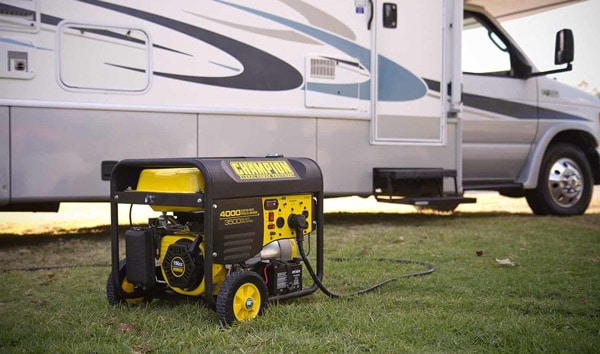Any new RV enthusiast can feel overwhelmed by the wealth of information available about trailers. There are heaps of things you should deal with before you even get behind the wheel, from choosing the right equipment and supplies to deciding your destination and packing. No wonder a lot of beginners are not so sure where to start.
Reading RV guides can help you determine what you need to do for a successful RV trip. This article will discuss several things that RV beginners should know to make their journey smooth and more enjoyable.
Your Guide to RVing
Preparing for an RV trip can be very stressful as there are several things you have to make sure you have. This includes appropriate attire for the weather and the activities you plan to do. You will also want to make sure you are equipped with the necessary tools and the knowledge to use them if a problem arises.
Here are the four things you should know about RVing if you are a first-timer:
Clothing and Food
Places with warmer climates require lightweight and light-colored clothing, hats, proper footwear, and sunglasses. Be sure to bring sunscreen, umbrellas, and a cooler so you can keep your food fresh. Some RVs have refrigerators, but day trips can be cruel if you don’t have a personal cooler available.
Warmer months may be the most popular time for RVing. However, RV enthusiasts enjoy the hobby year-round. Some intend to look for warmer areas as the season changes, but you’ll be pleased to learn that modern RV amenities allow people to camp comfortably in colder locations.
There are several important RV packing tips to consider when camping in winter, but your complete packing list will not have significant changes. Some items you must have are warm, thick clothing, gloves, cotton hats, and water-resistant boots. For a snowy adventure, pack your snowboards, skis, and snowshoes.
There are loads of camping food ideas when traveling and camping with an RV. If you prefer full meals, you can achieve this with the amenities available in modern RVs. You can do most prep work, such as cutting, separating, seasoning, and marinating, at home before starting your trip. You may also have road-friendly food, such as light and handheld snacks, like potato chips, trail mix, and sandwiches.
Tools and Spare Parts
Knowing the different systems and parts of your vehicle is essential in RVing. While there are RV mechanics, dealerships, and fellow RVers who can help you, an overheating engine or blown tire may leave you stranded miles from civilization. Knowing some essential tools and know-how could save you lots of time and money.
Your toolkit should include items that can cover many common issues that may arise. This includes pliers, screwdrivers, safety goggles, a large flashlight, work gloves, a range of combination and crescent wrenches, and a socket set with different sized sockets and extensions. You should also include other valuable tools, such as a ball-peen hammer, tire gauge, 12-volt test light, a pry bar, and wire brush.
If you are an expert in automobiles, you may add tools specific to your area of expertise. Some items to consider are rope, shovels, zip ties, extra weather-stripping and rubber gaskets, shovels, and a silicone tube. These items are used around the campsite to enhance your comfort and fix minor damage or small cracks inside the RV.
Consider adding a water filler or pressure regulator to control the water flow, surge protectors to protect any electronic equipment, and sewer kits for maintaining your RV’s bathroom. These items are essential to ensure the longevity and integrity of your systems and amenities.
Cleaning Supplies
You wouldn’t like your RV to be dirty and messy, so it is vital to bring cleaning products to keep your vehicle clean.
Common surface cleaners and windows cleaners work well here. However, you should also consider bringing specialty items, such as a compact vacuum, toilet bowl cleaner, and shower spray.
In addition, do not forget to bring cleaning wipes and microfiber cloths for spills, a doormat to keep dirt from tracking too far into your vehicle, and a wet/dry mop for further disinfection.
Other Helpful Tips
Before you finalize your RV trip checklist, think of some valuable items that are often overlooked and bring things that can be used in several situations. For instance, bandanas can be used as cleaning rags, worn, or wrapped around a wound.
When starting campfires, flint and steel are more reliable than a lighter or matches. Also, pre-treated logs are perfect for roasting hotdogs and marshmallows.
Try not to over-pack if it is your first time going camping. This is a common issue for newbies, and it often leads to unnecessary weight, spoiled food, and wasted space. Everyday items to drop from your list are extra clothing, video games, and foods that need lots of preparation.
Being an RV Beginner
You should remember that it is best to be prepared when traveling with an RV. Bring essential items such as food, proper clothing, tools, cleaning items, and other handy things. Avoid bringing too many items to save space and time. By keeping the list we have shared with you in mind, we’re confident that you’ll have a solid set of gear to get started. You can simply adjust and build on them as you go. Safe travels!


